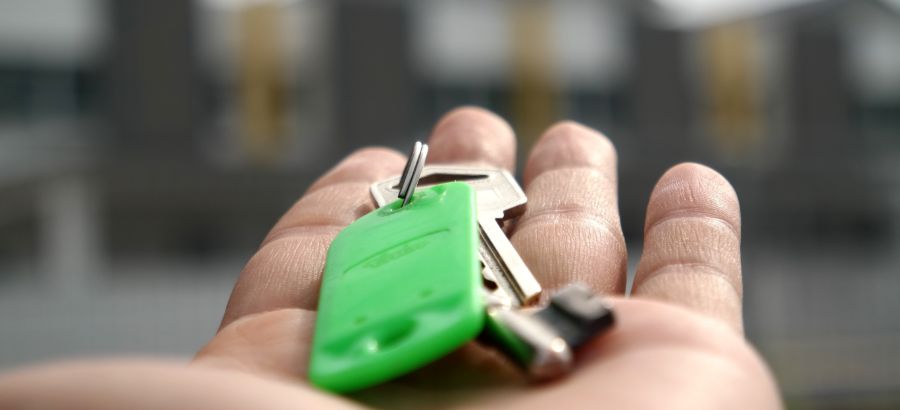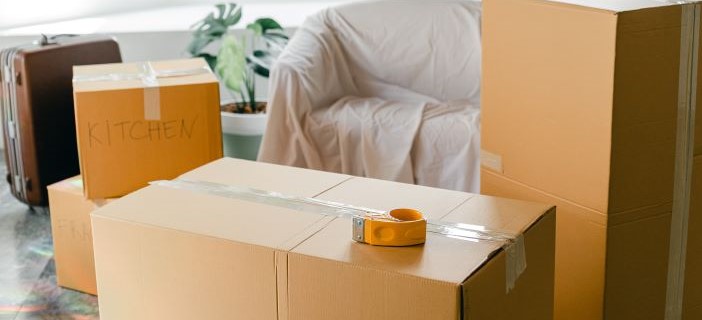Moving house is an exciting time and often an open door leading to a new chapter in your life. But if you’re moving out for the first time, you may also be experiencing nerves and uncertainty about living alone.
There is a lot to consider when embarking on your new journey from finance and paperwork to planning and packing. Being prepared and organised for your solo adventure can ease anxiety and boost your confidence.
Our guide details everything you need to consider when moving out for the first time so you can feel confident in the run-up to moving day. If you’re moving out for the first time, keep reading.

Finance
Living without the support and safety net of your family is a big adjustment to make when you move out for the first time.
It is a good idea to work out your budget and ensure your finances are in order. Figure out your monthly income and compare it against your monthly outgoings to ensure the books are balanced. Ensure to factor in all expenses that will need to be paid for, including any costs that your parents may have paid before, such as phone bills, food deliveries, and travel costs.
If you are renting your new home, use this budget to figure out how much rent you can afford to pay each month. Remember to account for council tax and a rough estimate of your utility bills.
You will then need to budget for the moving process itself. Yes, the actual moving process also incurs costs! If you’re buying a house you will need to budget for the solicitor fees, surveying fees, and conveyancing fees. If you are renting, you will need to ensure you have the required deposit saved and ready to secure your new home.
Location, location, location
Moving out of your childhood home means you are no longer tied to a particular location. When considering moving out for the first time, be sure to also think about where you would like the location of your new home to be. Some areas will be more expensive to buy and rent than their neighbouring towns so consider this also.
Once you have found a suitable location ensure you are happy and can see yourself being happy there in the long run. Moving house is a costly process that should not be rushed. It can be easy to make compromises such as a longer commute in exchange for lower rent, but this can quickly feel like a burden.
Viewing houses
It usually takes anywhere from two to twelve weeks to find a house and you could view up to 10 properties before finding the perfect one! When viewing a house, take extra time if needed to make sure the space is perfect for you.
You may be itching to get out of your family home and find your own space but buying a house is a big investment that should not be rushed or compromised for a quick turnaround.
Once you think you have found your perfect abode, visit throughout the week at different times to get an idea of traffic, noise levels and parking.
Pack, organise, and donate
You’ve secured your independent space and it’s now time to begin packing, organising, and donating the possessions that no longer serve a purpose to you.
Once you begin to pack up all your belongings you may quickly realise you have too much stuff and that you even have stuff you didn’t know you had.
If you’re moving out for the first time, you’re likely to have a huge inventory of belongings that can be donated, recycled, or sold before the move.
But don’t feel like you must pack and organise all your stuff in one day. Packing up belongings can be an emotional and overwhelming task.
You may even want to consider short-term storage solutions to help with the organisation and smooth moving process.

Paperwork and bills
Setting up your bills before moving into the property can help you settle in quickly and efficiently to your new home. You will need to provide paperwork and arrange for some bills to be transferred into your name including the council tax, gas, electricity, and water.
Don’t overlook overheads such as WiFi, a television license or parking permits when moving into your own home. These are likely to be utilities that the primary homeowner arranged in your family home that you now need to set up. It can take a few weeks to arrange parking permits and WiFi so be sure to call up in advance if you require them straight away.
Legally, you must also update the address on your driving license when you move home and ensure to protect yourself from identity fraud by redirecting your mail to the new address especially if your family have moved from the old address.
What do you need when moving out for the first time?
When moving home there is so much to consider and if you’re moving out for the first time, it’s likely, that you have never given much thought to some of the actions required.
Checklist of things to buy before the move
A checklist of things to buy before the move is a great way of breaking down the purchases you need to make ahead of moving day. This may include bedroom furniture and kitchen appliances but also toilet paper and a first aid kit.
These are the essential items you will need to get through the first few days in your new place. Be sure to check with the estate agent and ask if any furniture or appliances are being left by the previous owner. This could save you a great deal of cash and installation time.
Make arrangements before you move
Before you move, you can arrange for any paperwork to be complete before you move in to allow for a seamless transition. Updating paperwork such as a driving license and council tax before the move-in date is one less thing to think about once you arrive at your new property.
Checklist of what to buy afterwards
Once you’ve unpacked and figured out a rough plan for your space, it is time to create a checklist of what you need to buy to turn the house into a home.
These items may include a sofa, coffee table, storage baskets, bins, dishes, pots and pans, tea towels and cleaning items.
As you settle into your home you will discover new items that you require and build up an inventory as you go along. Pre-made checklists are available online to help you keep track of your home purchases and allow you to prioritise what you need next.
Titan Self Storage is open 24 hours a day, 365 days a year so your equipment, furniture and documents are at hand whenever you may them. Get in touch today to arrange temporary safekeeping for your possessions and valuables.
